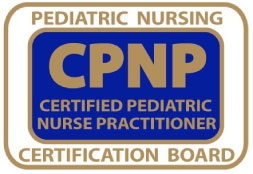FNP-to-PNP Guidance
Are you a Family Nurse Practitioner (FNP) wanting to be certified as a Pediatric Nurse Practitioner (PNP)? Use this page to walk through the process and see FAQs. For more questions, contact exam@pncb.org.
- Ready to find a PNP program? Use our resource: what to look for in a PNP program.
- Then explore directories of pediatric primary care, acute care, or dual acute/primary care PNP programs.
How can I become a PNP?
FNPs must attend a post-graduate PNP certificate program or post-master’s DNP PNP program that is accredited by the Commission on Collegiate Nursing Education (CCNE) or Accreditation Commission for Education in Nursing (ACEN).
What courses and clinical practice hours will I need to complete?
PNCB endorses the 2016 Criteria for Evaluation of Nurse Practitioner Programs (NTFC) which requires that post-graduate students successfully complete clinical and didactic courses in the desired area of practice needed to master the same competencies as the master’s or DNP students.
- PNP courses can be waived by the PNP program if your FNP transcript documents that the required course or its equivalent was successfully completed in your FNP program.
- Educational programs will use a gap analysis to analyze the coursework and clinical practice hours and to address any shortfall in pediatric content that would affect your ability to meet PNP competencies. (See pages 38 and 39 of the NTFC).
What courses and clinical hours will I need to complete if I am practicing as a PNP but educated as a FNP?
The NTFC allows for special consideration to be given for NPs who are practicing in the population-focused area of practice for which they are seeking certification. You may challenge selected courses and experiences; however, you must complete a sufficient number of clinical practice hours and didactic to master the competencies in the PNP role and population (pediatric primary care, pediatric acute care, or dual pediatric primary/acute care PNP).
What courses and didactic will I need to complete if I am not practicing as a PNP and educated as an FNP?
You may challenge selected courses and experiences. However, the completed courses and clinical practice hours must be sufficient for you to master the competencies of PNP practice.
How many courses and clinical practice hours will I be required to complete?
This depends on the outcome of your gap analysis comparing your FNP program to the PNP program requirements and any other requirements of the school of nursing you will be attending. Remember, you will need to gain competency as a PNP.
Can I use my work hours to meet the PNP program’s clinical practice hour requirements?
Criterion IV.B.2 of the NTFC includes:
- Students’ clinical experiences at the student’s site of employment need to be faculty-guided learning experiences and outside of the student’s employment expectations/responsibilities.
- Clinical hours are planned to meet specific identified learning objectives. It is an expectation that the majority of clinical time will be spent with preceptors who can provide experiences that match the student's needs. Educational programs usually do not recognize clinical hours completed as a result of employment to avoid legal and ethical conflicts between employer expectations and the student’s learning needs.



